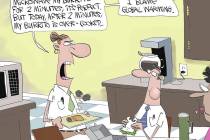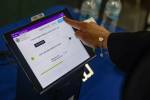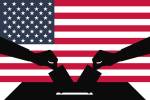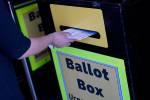Voter ID and common sense
Almost 14 years ago, Random House published "The Death of Common Sense," by Philip K. Howard.
Mr. Howard, an attorney, argued that the nation's growing dependence on law and bureaucratic hegemony "precludes the exercise of judgment." That our reliance on the legal system to address every perceived wrong is, in fact, having major cultural ramifications when it comes to individuals applying logic and common sense to everyday problems.
In his relatively brief tome, Mr. Howard cites a number of examples, including how an effort to provide housing for the homeless in a previously abandoned structure was scuttled in New York City after regulatory authorities demanded the installation of an elevator at a cost of $100,000.
Mr. Howard has since been a vocal advocate of regulatory and legal reform. And his thesis remains as relevant as ever -- it will, for instance, be on display Jan. 9 when the U.S. Supreme Court hears the related Indiana cases of Crawford v. Marion County Election Board and Indiana Democratic Party v. Rokita.
Both cases address a relatively simple question: Is it unconstitutional for states to demand that voters identify themselves before they cast a ballot?
Believe it or not, the notion that people should be required to provide identification before voting is highly controversial in some left-wing circles.
"We, as a country, should be finding ways to make it easier for people to vote," Michael Waldman, executive director of New York University's Brennan Center for Justice, told The Washington Post.
In fact, we already do. Most states -- including Nevada -- have relaxed their absentee ballot laws, meaning individuals can vote without ever leaving their homes. Other states -- including Nevada -- feature early voting, allowing citizens to cast ballots for days leading up to the actual election day. Registering to vote has never been easier -- it can be done online or at many governmental offices.
Meanwhile, requiring voters to identify themselves at the polls is a threat to our democracy?
Even voters without identification who are turned away in states that feature such laws are allowed to cast provisional ballots that will eventually be counted if they are deemed valid. Some states with voter ID laws allow citizens to use items such as utility bills as evidence of their identity.
The burden is hardly overwhelming at a time when you can't cash a check or board an airplane without some form of identification.
"It is exceedingly difficult to maneuver in today's America without a photo ID," noted federal judge Richard Posner in the 7th U.S. Circuit of Appeal's 2-1 decision upholding lower court rulings that Indiana's 2005 voter ID law does not overly burden potential voters.
Like so many other issues, this entire debate has become politicized. Democrats believe that voter ID laws disenfranchise poor or minority voters who might be more likely to support their candidates, so they have fought them in virtually every state where they've been proposed, seeking to use the courts to circumvent the judgment of lawmakers across the country.
But the real issue here is the integrity of the system. It's all well and good to encourage people to participate on election day. Yet increasing voter turnout must not be achieved at the expense of making it easier to commit fraud, thus undermining the entire democratic process.
Voter ID laws represent a reasonable effort to ensure that those who cast ballots are who they say they are. Let's hope the Supreme Court agrees.
After all, it's just common sense.























